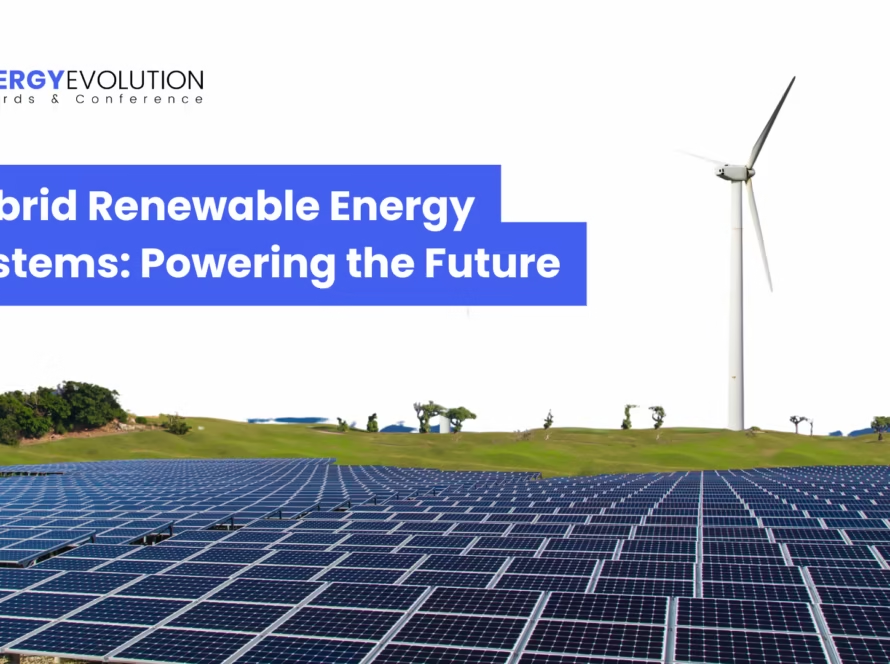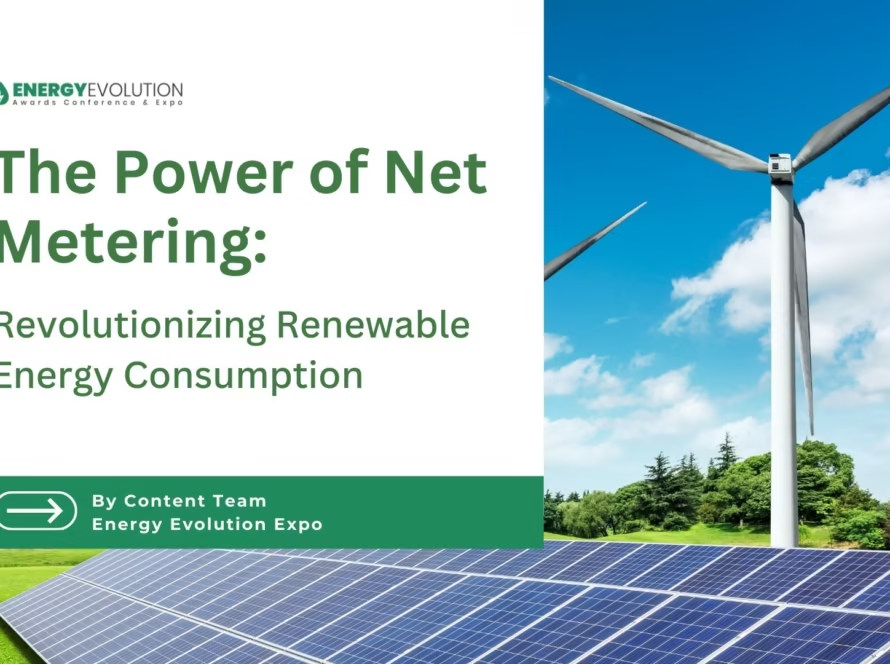Explore the top renewable energy breakthroughs of 2025, from AI-driven smart grids to green hydrogen and quantum batteries. Join global innovators at the Energy Evolution Awards & Conference 2026 in Dubai for networking, investment, and future-ready energy solutions.
In 2025, renewable energy is no longer just an alternative—it is rapidly becoming the backbone of global power systems. Driven by urgent climate goals, policy support, and technological innovation, the energy sector is witnessing breakthroughs that are transforming how we produce, store, and consume power. From advanced solar cells and AI-driven smart grids to green hydrogen and next-generation batteries, these innovations are shaping a cleaner, more resilient, and cost-effective future.
1. Advanced Photovoltaics (PV)
Perovskite–on–silicon tandem cells and thin-film flexible panels significantly boost conversion efficiency while cutting manufacturing costs. Their lightweight and adaptability open new integration possibilities—from building-integrated PV (e.g., windows, rooftops) to portable energy solutions.
Luminescent solar concentrators elegantly combine light harvesting with aesthetic design, ideal for architectural uses.
2. AI, Big Data & Smart Grids
Artificial intelligence-driven smart grids optimize energy distribution, forecast renewable generation, and enable predictive maintenance. These systems enhance grid resiliency, balance load fluctuations from solar and wind, and improve real-time supply–demand matching.
Research highlights smart grids as transformative for energy management, addressing challenges like cyber-security and EV integration.
Machine learning accelerates innovation by optimizing materials for energy harvesting, storage, and management systems.
3. Next-Generation Energy Storage
Enhanced lithium-ion and solid-state batteries offer higher energy density and lower cost, critically improving storage capacity for grid and mobile applications.
Quantum batteries—still in early-stage development—promise radical breakthroughs in how energy is stored, potentially transforming future energy storage paradigms.
4 Green Hydrogen
Hydrogen produced via renewable-powered electrolysis continues to emerge as a clean fuel for hard-to-decarbonize sectors—shipping, aviation, and heavy industry. It also serves as long-duration energy storage and a buffer for grid variability.
5. Floating Solar & Modular Wind
Floating solar farms benefit from cooler water temperatures and efficient land use, improving output and scalability.
Modular wind turbines, easier to install and maintain, extend the reach of wind energy into remote or infrastructure-limited regions.
6. Grid Integration & Transmission Innovation
Enhanced grid technologies minimize transmission losses and bolster stability, especially in integrating distributed renewables—bioenergy, mini-hydro, and microgrids.
Policy and regulatory streamlining—such as faster interconnection queues and strategic transmission upgrades—are critical to scaling innovation.
7. Modular Thermal Energy Systems for AI/Data Centers
Exowatt is pioneering thermal energy storage platforms to deliver reliable, round-the-clock renewable power tailored for AI-heavy data centers. With $90 M in total funding and commercial deployments ramping up in 2025, Exowatt exemplifies new approaches to baseload renewable energy.
8. Bioenergy & Emerging Energy Innovations
Building on solar, storage, and hydrogen, bioenergy (e.g., advanced biomass conversion) and emerging tech like quantum energy science are gaining momentum as essential complements in the clean energy landscape.
Regional Momentum
Innovation surges are especially notable in:
Western Europe: rapid progress in solar and hydrogen technologies.
United States: leadership in AI-enabled grid solutions and storage innovation.
India: a hotbed of startup activity and clean tech deployment at scale.
Notably, Indian scholar Saurabh Motiwala (IIT Bombay) was lauded at the SOLAR 2025 conference in the US for his work on large-scale PV + Battery Energy Storage (BESS) integration—highlighting the importance of socially equitable energy policy.
Conclusion: Looking Ahead to Energy Evolution Awards & Conference 2026
As we stand at the cusp of a clean energy revolution, innovation—across PV, storage, AI, hydrogen, and system integration—is accelerating momentum toward a resilient, net-zero future.
Mark your calendars for the Energy Evolution Awards & Conference 2026, scheduled for 10–11 February 2026 in Dubai, UAE. This premier event will feature recognition of global innovations, deep dives into emerging technologies, hands-on learning, international networking, and investment opportunities—all celebrating breakthroughs shaping the future of energy.
References
Smart grids and AI in energy management
Quantum batteries: potential future energy storage
Innovation in renewable energy: Developments expected in 2025




